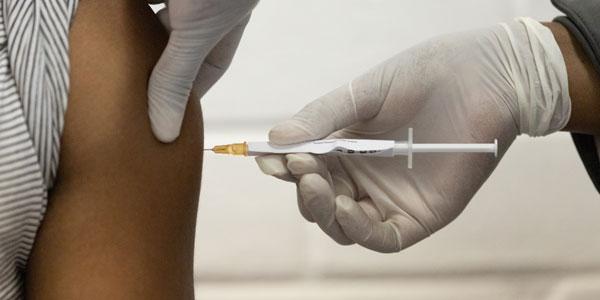Do financial incentives boost vaccination rates?
- Wits University
Cash incentives only have a marginal effect on increasing vaccination uptake by adults, according to a Wits University and Columbia University study.
The impact of lottery programmes was also limited and there was no evidence that other non-cash incentives for Covid-19, or other adult vaccines, improved vaccination coverage.

The review of research on vaccine incentives for Covid-19, titled Use of financial incentives to increase adult vaccination coverage: A narrative review of lessons learned from COVID-19 and other adult vaccination efforts, was published in the journal Vaccine X.
The majority of the studies reviewed were from the US (13). Studies were also identified from Germany (2), and one each from the UK, Singapore, Mexico, India, Sweden, and Australia. Although there were two studies from Nigeria, there were no studies from other low- or middle-income countries (LMICs), which includes South Africa.
The review found that incentives aimed at individuals to encourage them to get vaccinated had included direct cash transfers and lottery tickets, and non-financial incentives such as food, appliances, and cannabis.
“While we found evidence of cash transfers increasing both the coverage and intention to be vaccinated, very few studies considered these effects at a population level, and the ones that did found that the improvements were limited to a few percentage points in vaccination coverage,” says lead author, Nina Schwalbe.
Schwalbe is a PhD candidate in the School of Pathology in the Faculty of Health Sciences at Wits University and an Adjunct Assistant Professor in the Heilbrunn Department of Population and Family Health at Columbia Mailman School of Public Health.
"Conditional cash transfers have been proven to be an effective way to increase coverage for low-income populations in other health areas. However, the studies reviewed did not assess outcomes by socio-economic status. This was a missed opportunity,” she added.
About the review
The researchers conducted the review using MEDLINE, PubMed, and Cochrane databases of peer-reviewed articles published between 1 January 2012 and 9 February 2022.
The initial search yielded 617 articles. After title and abstract screening, researchers conducted a full-text appraisal of 110 articles, excluded duplicates, and identified 26 articles that met the inclusion criteria – the majority of which were from the US.
The effects of lottery programmes ranged from none to a slightly over two percent increase in coverage, and no evidence was identified for the positive effects of other non-cash incentives for Covid-19 or other adult vaccines.
“Of note, for all vaccines, incentives were found to be more effective for the first dose than the second dose. Even more surprising, there was no evidence presented in any of the studies on the extent to which incentives serve to address the concerns of those who are hesitant, or even increase uptake, among people who are hesitant,” says Schwalbe.
Furthermore, many governments, states, and cities offered incentives to increase vaccination coverage but did not embark on any type of implementation research to evaluate programme effectiveness, according to the review.
“While we found evidence that some programmes work, none of the research took it further to understand why or for whom incentives resulted in positive effects,” says Schwalbe.
Ethics, access, and vaccine hesitancy
The World Health Organization (WHO) classified vaccine hesitancy as among the 10 biggest global health threats in 2019. In 18 months, 11 Covid-19 vaccines were authorised for use by the WHO and more than 66 percent of the world’s population has received at least one vaccine dose.
The authors note that some studies raise ethical concerns that financial incentives for vaccination could be construed as coercive, and that in politically-divided contexts, government-promoted incentives might generate a backlash among those who are already hesitant, heightening suspicion of vaccination programmes. Using financial incentives as a carrot may also create social expectations for them in future, which could backfire in the long run.
“While Covid-19 vaccines are available and affordable in most countries, accessibility is an ongoing challenge in many areas of the world, including LMICs,” says Schwalbe, whose thesis focuses on Covid-19 and equitable access to vaccines by exploring the roles of acceptability, accessibility, affordability, and availability.
Trust is key to vaccine coverage
“These findings speak to focusing on interventions that work. In every setting – including in LMICs – the key to vaccine coverage is trust between communities and providers,” says Schwalbe. “Also critical are increasing points of access, community outreach, reducing out-of-pocket costs, and providing clear information, about safety, efficacy, side effects, and community and individual benefits.”

